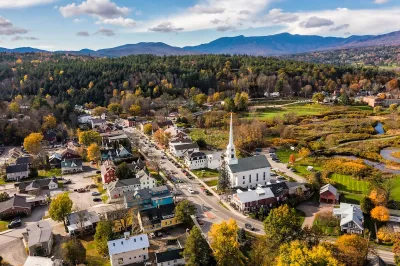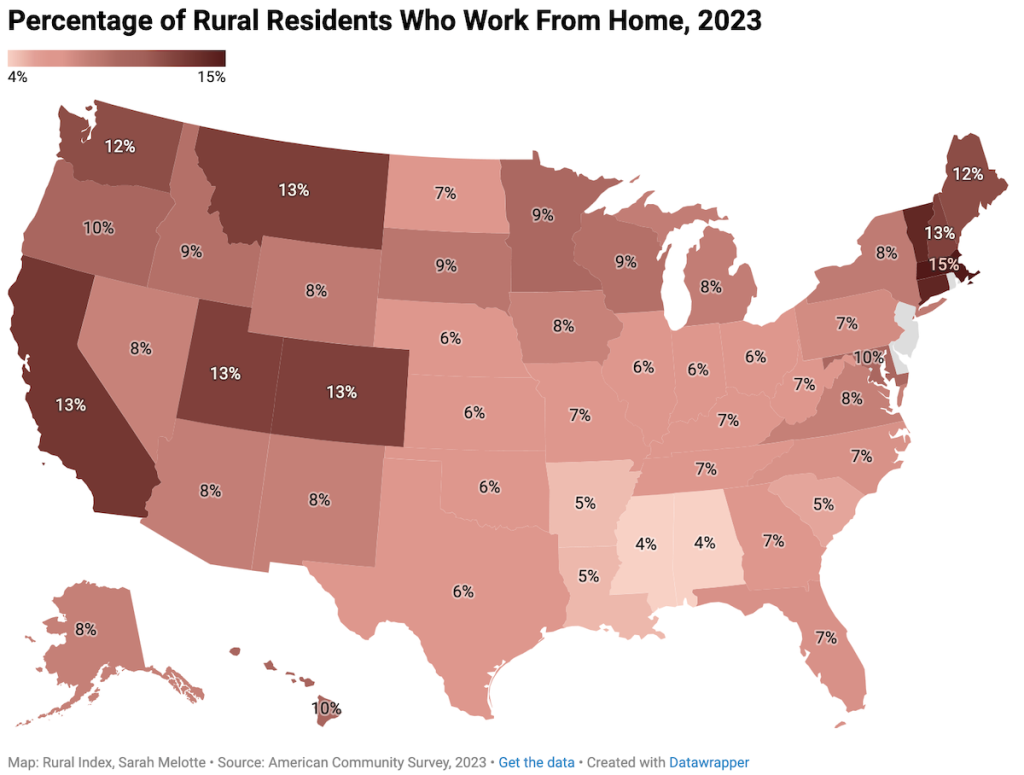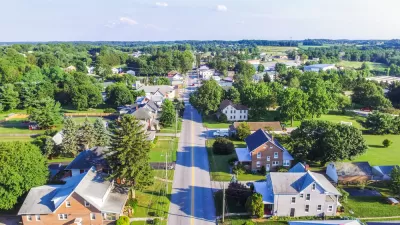Remote workers flock to ski towns, hiking spots and other popular recreation hubs.

A new in-depth analysis from The Daily Yonder provides a nuanced glimpse at what is driving remote working trends in rural areas of the United States. Published in their data newsletter Rural Index, the analysis shows that while fewer remote workers live in rural areas of the U.S. than in cities overall, the concentration of rural remote workers varies significantly based on the dominant industry of the region.
Some highlights of the analysis include:
- Metropolitan workers are 75 percent more likely to work from home than rural workers
- In rural counties with recreation economies such as ski hills, hiking trails, boating, and other recreational activities, a greater share of the workforce works remotely
- Recreation-dependant counties have an average 12 percent remote workforce — but in some of these counties remote workers make up over a quarter
- Rural counties with manufacturing- and mining-dependent economies have the fewest remote workers, which make up only 6 percent of the workforce on average
- Western states and New England have the highest percentage of rural remote workers, while Alaska, Hawaii, and the Midwest have the lowest

See the full analysis, including several interactive graphs, at the link below.
FULL STORY: Recreation-Dependent Counties Attract Remote Workers

Maui's Vacation Rental Debate Turns Ugly
Verbal attacks, misinformation campaigns and fistfights plague a high-stakes debate to convert thousands of vacation rentals into long-term housing.

Planetizen Federal Action Tracker
A weekly monitor of how Trump’s orders and actions are impacting planners and planning in America.

In Urban Planning, AI Prompting Could be the New Design Thinking
Creativity has long been key to great urban design. What if we see AI as our new creative partner?

King County Supportive Housing Program Offers Hope for Unhoused Residents
The county is taking a ‘Housing First’ approach that prioritizes getting people into housing, then offering wraparound supportive services.

Researchers Use AI to Get Clearer Picture of US Housing
Analysts are using artificial intelligence to supercharge their research by allowing them to comb through data faster. Though these AI tools can be error prone, they save time and housing researchers are optimistic about the future.

Making Shared Micromobility More Inclusive
Cities and shared mobility system operators can do more to include people with disabilities in planning and operations, per a new report.
Urban Design for Planners 1: Software Tools
This six-course series explores essential urban design concepts using open source software and equips planners with the tools they need to participate fully in the urban design process.
Planning for Universal Design
Learn the tools for implementing Universal Design in planning regulations.
planning NEXT
Appalachian Highlands Housing Partners
Mpact (founded as Rail~Volution)
City of Camden Redevelopment Agency
City of Astoria
City of Portland
City of Laramie





























